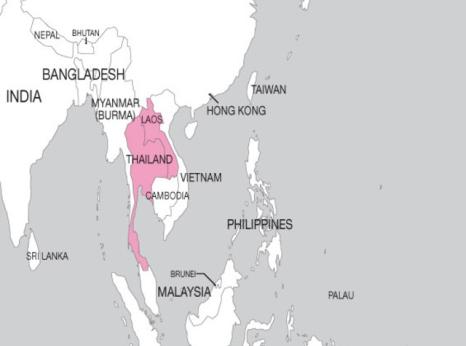Thailand: Release Activists And Drop Charges

The Thai government has frequently responded to a mainly peaceful, youth-led, reform movement and related protests which began in 2020 by violating human rights. The government continues to judicially harass, surveil and harass people who express dissenting opinions in protests or online. Authorities have denied individuals their right to bail, arbitrarily detained them and imposed excessive bail conditions – including conditions amounting to house arrest, with activists requiring court permission to leave their residences, and broad restrictions on the peaceful exercise of rights.
Since the Bangkok Criminal Court revoked their bail on 9 January 2023, radiological technician Sopon and 2nd year university student Nutthanit have been detained in Bangkok Remand Prison and Bangkok Central Women’s Correctional Institution (CWCI) respectively. Authorities had alleged that by participating in a peaceful protest on 17 November 2022 during the Asia-Pacific Economic Cooperation (APEC) Summit, Sopon and Nutthanit had violated the conditions of their bail of their previous temporary release in a lèse majesté case revoked. Law student Tantawan and Orawan have been detained since 16 January 2023. They protested against the revocation of bail of Sopon and Nutthanit and denial of right to bail of other detained activists, and they made an application to authorities to revoke their bail. Since the night of 18 January 2023 Tantawan and Orawan have gone on hunger-strike, including refusing liquids. The pair are calling on authorities to reform judicial process, drop charges against persons targeted for their peaceful exercise of their right to freedom of expression, and on political parties to pledge to amend security laws used to imprison activists. Tantawan and Orawan are now hospitalized after collapsing and are refusing to be fed by an intravenous drip.
Sopon, Nutthanit, Tantawan and Orawan are among reform activists who authorities have targeted with criminal charges simply because they exercised their human rights. These activists face prosecution and possible imprisonment of up to decades. In 2022, authorities filed criminal proceedings for lèse-majesté under Article 112 of the Criminal Code against Sopon following references to the monarchy in speeches at demonstrations in 2022, and against Nutthanit, Orawan and Tantawan for canvassing public opinion. They all also face charges for publicising their activism on Facebook. Authorities have charged them under laws protecting national security, whose vaguely worded clauses allow authorities excessive latitude to interpret the peaceful exercise of rights as crimes. UN human rights experts have called on authorities to amend or repeal this legislation, including Article 116 on sedition and Article 112 on offences to the monarchy on the basis in order to comply with their human rights obligations. The revocation of their bail relates to charges under Article 112 of the Criminal Code.
Sopon and Tantawan have been engaged in activism during 2020 youth-led protests, with both volunteering to provide security at 2020 demonstrations. Sopon also established a student campaign group in 2020, which has campaigned for student rights, against enforced disappearances and for monarchy reform. This is the second time that authorities have revoked and denied the right to bail to Sopon, Nutthanit and Tantawan. Between late April and early May 2022 authorities detained Sopon – who at the time was in his final year of radiology studies - in the Bangkok Remand prison and Nutthanit and Tantawan in the Central Women’s Correctional Institute. All three protested official denial of their right to release on bail in prolonged hunger-strikes, with consequences for their health. Tantawan was on hunger-strike during her 37 days detention, Nutthanit for 64 of her 94 days’ detention and Sopon for 25 of his 30 days detained. In 2022 authorities granted temporary release to Sopon, Nutthanit and Tantawan on the conditions requiring them not to repeat their “offences”, participate in activities that cause public disorder or may damage the monarchy. Tantawan and Sopon were required to stay in their residences at all times unless to attend work, university or for medical reasons, and to obtain court permission to leave. Tantawan faced the further requirement of wearing an electronic monitoring device, whilst Nutthanit was required to remain in her place of residence for 11 hours daily.
- Downloads
- Download full UA in Word
- FI05622_1.pdf